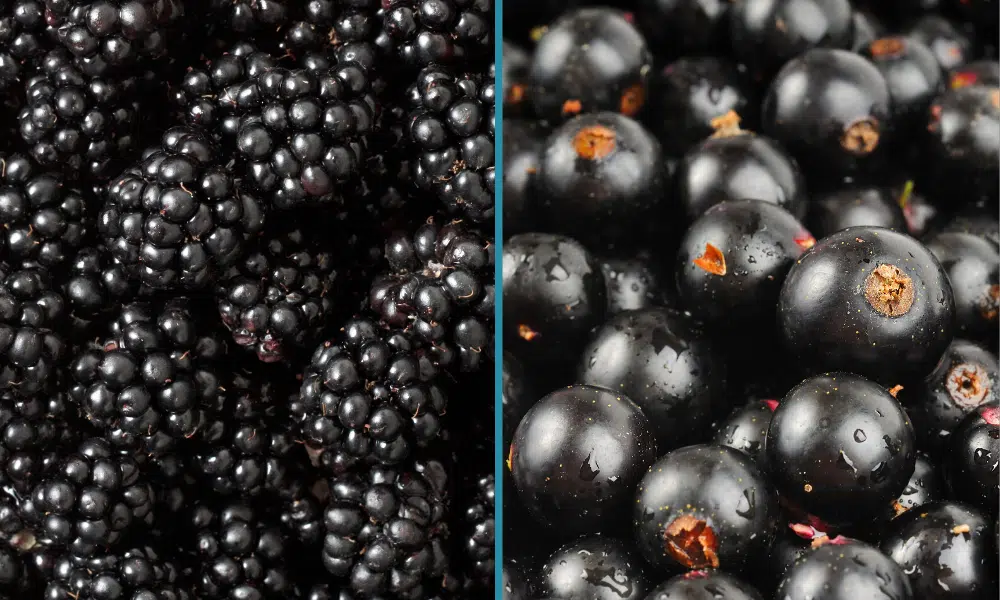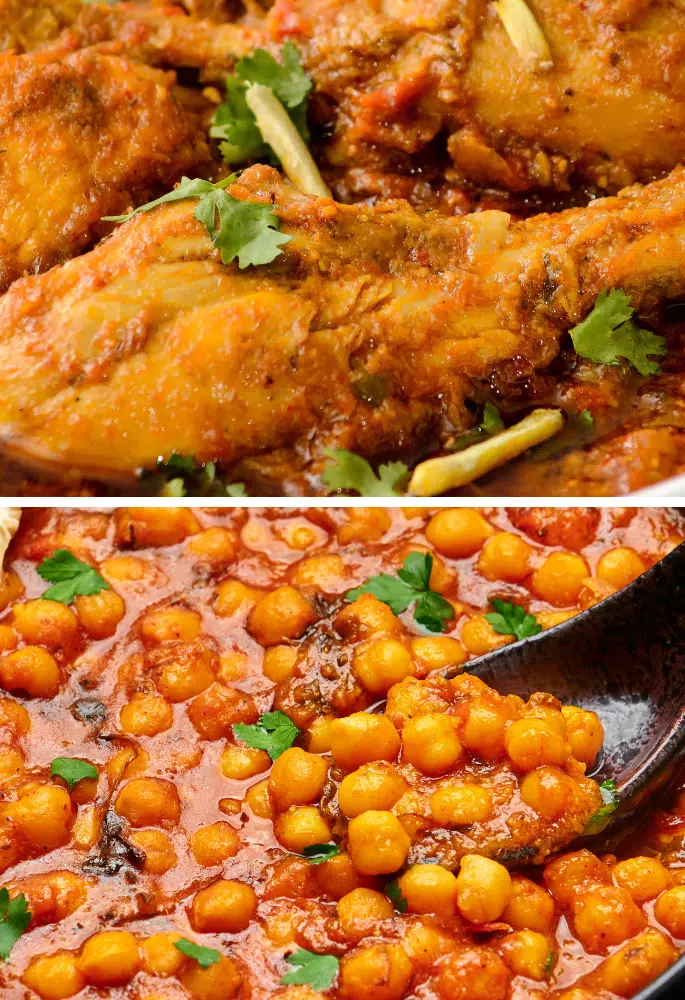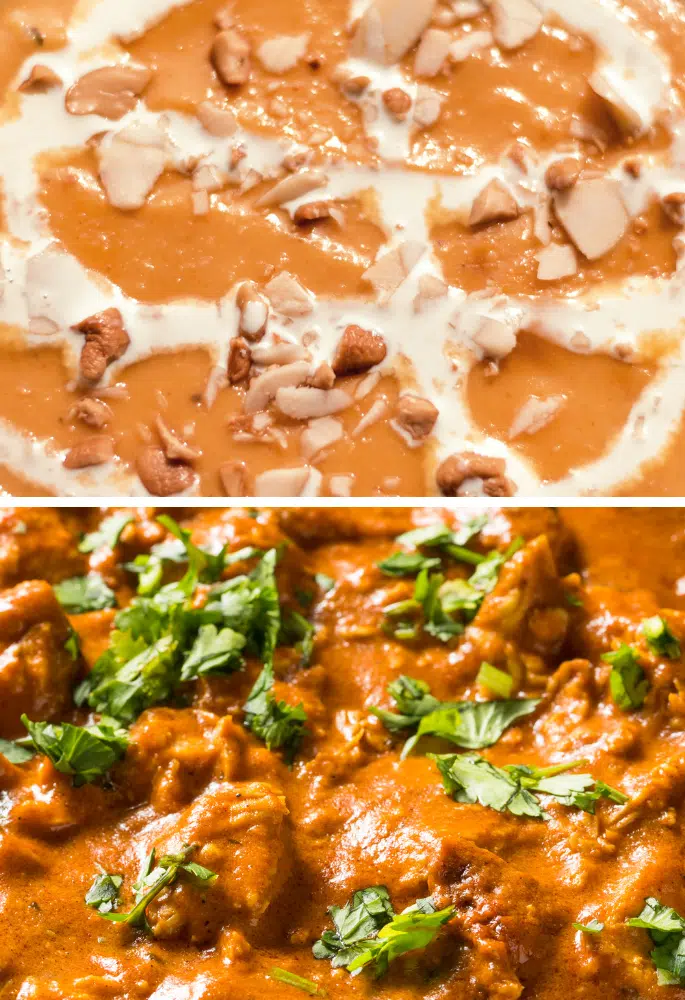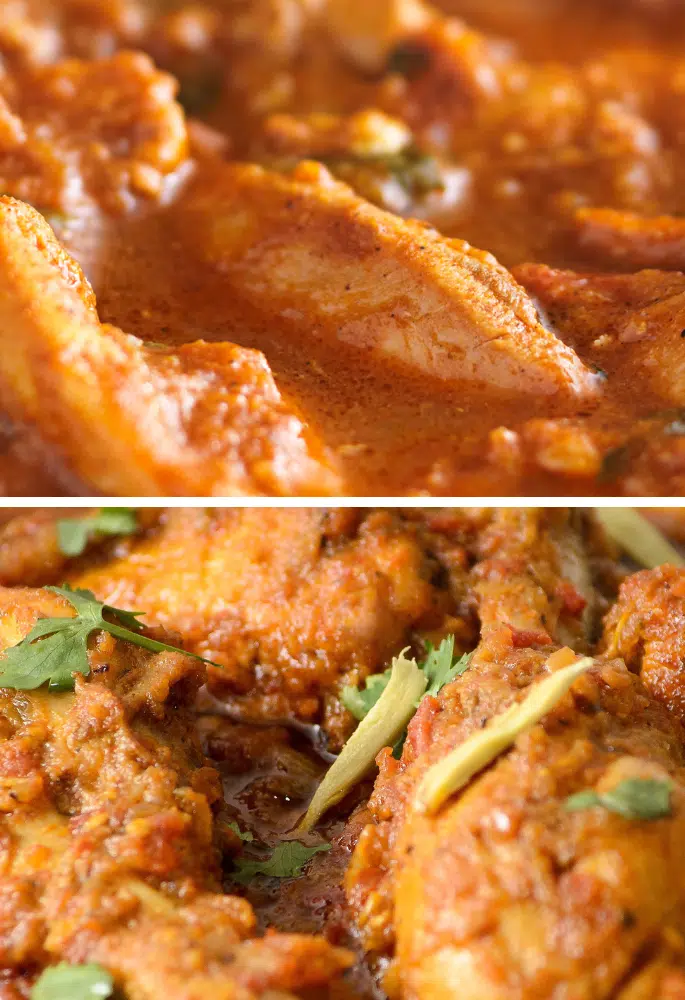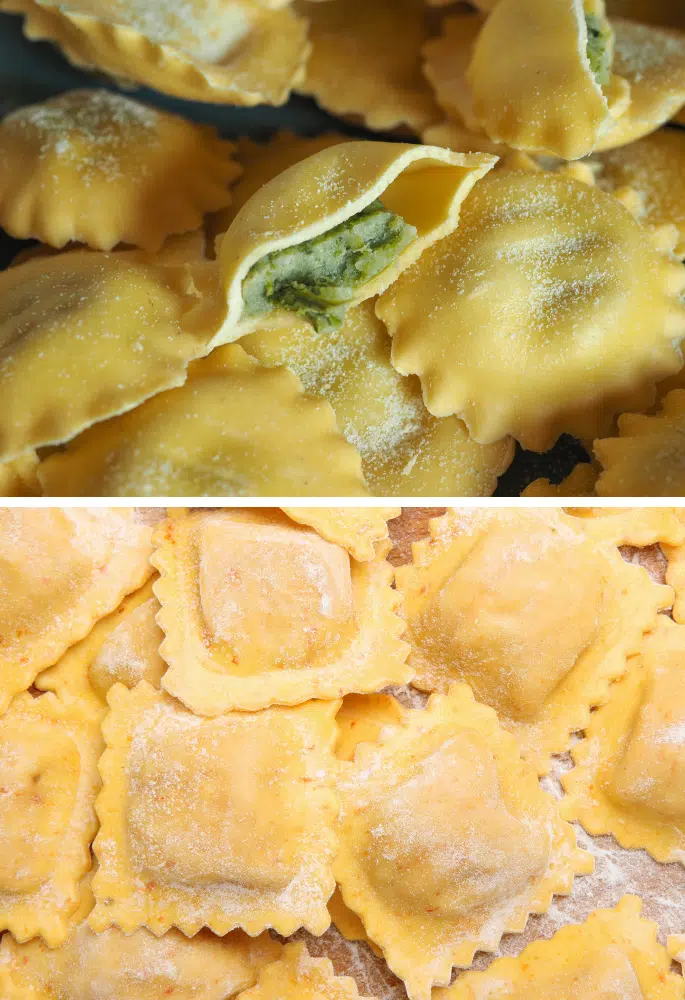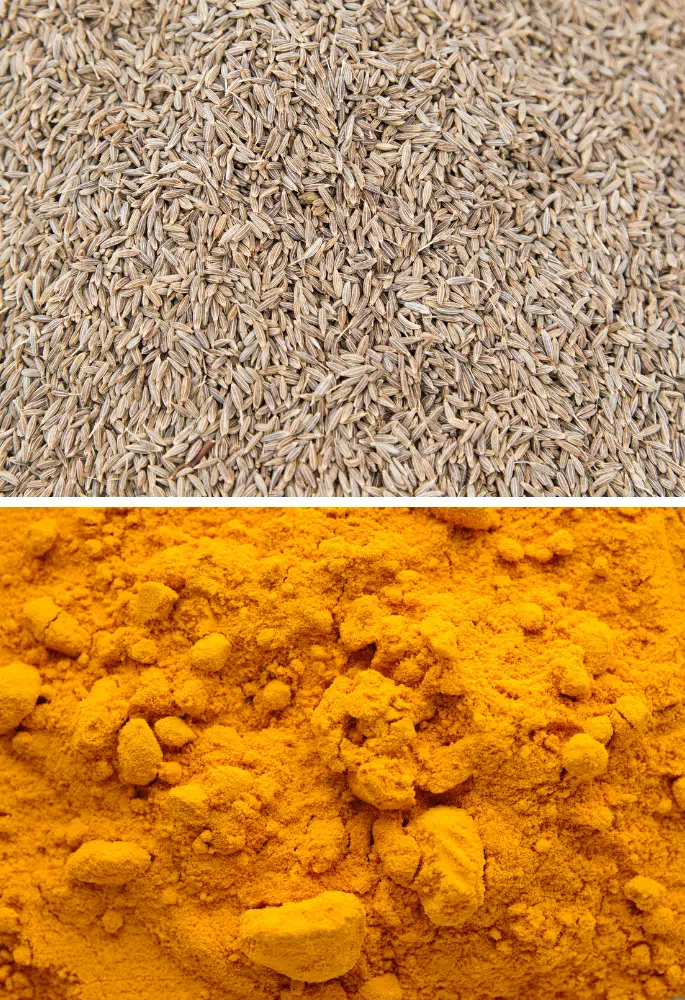Although it’s fairly obvious that blueberries and raspberries are not the same (you don’t need me to tell you that one is red and the other is blue), do they have similar characteristics with them being berries, or are they really polar opposites?
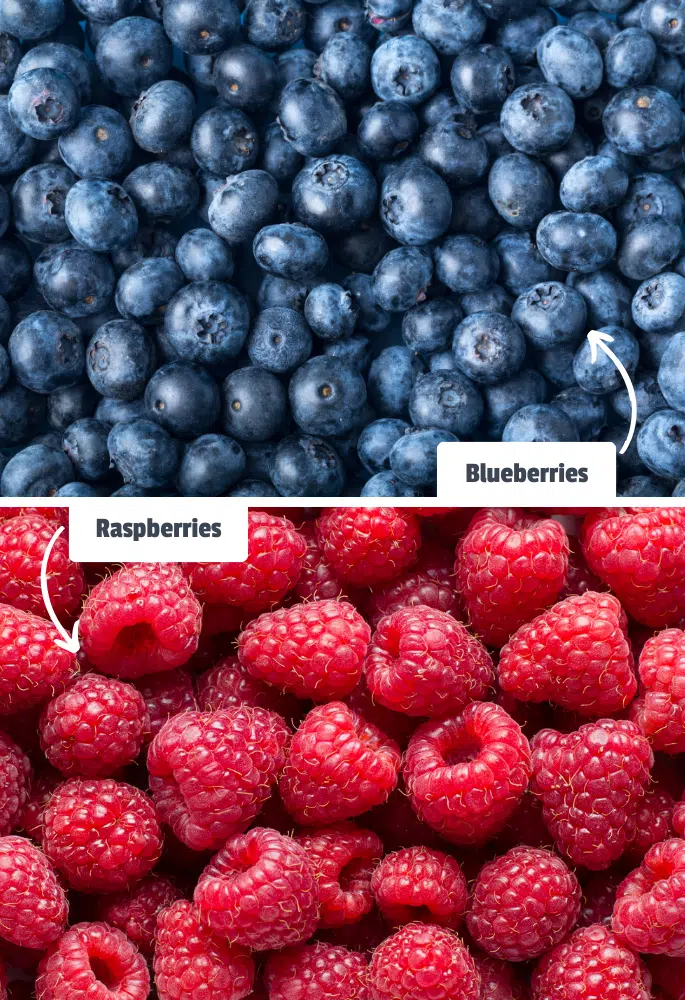
Blueberries are small, round, and blue-purple, with a sweet flavour, while raspberries are red or black, with a hollow core and a tangy flavour. They come from different species within the genus Rubus for raspberries and genus Vaccinium for blueberries.
What are Blueberries?
Blueberries are small, indigo-coloured fruits that hail from the genus Vaccinium, which also includes cranberries and bilberries.
Originating in North America, blueberries have been appreciated for centuries, both for their delectable taste and versatility in various cuisines. They grow on flowering shrubs, with species such as the highbush blueberry (Vaccinium corymbosum) being extensively cultivated.
The berries are round, with a flared crown at the end, and they have a sweet, mildly tart flavour.
They are often eaten fresh, incorporated into a plethora of dishes from breakfast cereals to baked goods, and also widely used in jam and jellies. Beyond their direct consumption, blueberries are also processed into purees and juices, and their natural pigment, anthocyanin, is utilised as a food colourant.
What are Raspberries?
Raspberries are vibrant, small, and typically red or black fruits belonging to the genus Rubus, known for their rich flavour and delicate structure.
They originated in Asia, but have been widely cultivated in temperate regions across the globe, with Europe and North America being prominent producers. Raspberries grow on perennial plants that offer a bounty of berries each year.
The berries are hollow, made up of many individual drupelets arranged around a central core, and they have a balance of sweet and tangy flavours that make them a popular ingredient in a vast array of dishes.
Fresh raspberries are enjoyed on their own or as a garnish, while in the kitchen, they’re used in desserts like tarts and cheesecakes, as well as in savoury sauces and salad dressings. They’re also commonly transformed into preserves and syrups and are used in the beverage industry to flavour liqueurs and sodas.
Similarities Between Blueberries and Raspberries
You might not think of blueberries and raspberries as having any similarities but there are a surprising number of characteristics that they do share:
- Botanical family: Both blueberries and raspberries belong to the same botanical family, Ericaceae. While they come from different genera, they share similar growing conditions, thriving in temperate climates and requiring specific soil pH levels.
- Nutritional profile: Both berries are known for being rich in vitamins, minerals, and antioxidants. They offer dietary fibre, vitamin C, and substances known as polyphenols, contributing to their reputation as a choice ingredient for those seeking nutrient-dense foods.
- Culinary versatility: Blueberries and raspberries are versatile in the kitchen. They can be used interchangeably in many recipes and are commonly found in desserts, jams, and as flavourings in many food products.
- Seasonal fruit: They are both seasonal fruits often harvested at similar times of the year, typically in the summer months.
Differences Between Blueberries and Raspberries
Of course, there are a number of things that make blueberries and raspberries completely different fruits:
- Genus: Blueberries belong to the genus Vaccinium, while raspberries belong to the genus Rubus. This botanical distinction also results in different plant characteristics and berry structures.
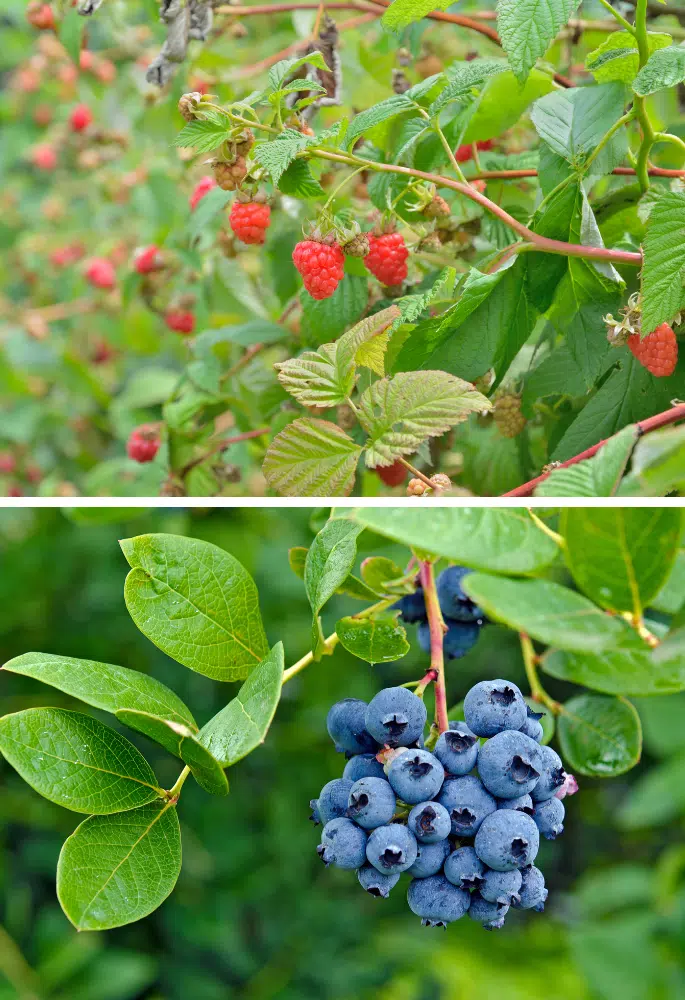
- Berry structure: Blueberries are small and round with a smooth skin, whereas raspberries have a compound structure made of multiple small drupelets forming a hollow core berry.
- Taste profile: Blueberries generally have a sweet and mildly tangy flavour, while raspberries are known for their more pronounced tartness, combined with a sweet undertone, which can vary based on ripeness.
- Texture: The texture of blueberries is firm and somewhat fleshy, whereas raspberries are more delicate and crumbly. This textural difference impacts their use in cooking and baking, as raspberries may not hold their shape as well when heated.
- Core: Unlike blueberries, which are solid berries, raspberries have a hollow core, a feature that is distinctive when the berries are picked from their stems.
- Colour variations: While blueberries are almost exclusively blue or purple, raspberries come in various colours, including red, black, purple, and golden.
- Preservation: Blueberries are easier to freeze and maintain their shape and texture upon thawing, making them more versatile for out-of-season use. Raspberries are more fragile when frozen and can become mushy, which may limit their use.
Yes, you can substitute blueberries for raspberries in most recipes, although the flavour will be milder and sweeter with blueberries. The texture will also differ, as blueberries are firmer. Adjust the sugar in the recipe accordingly, as raspberries tend to be more tart.
Blueberries vs Raspberries: Which Wins?
If you had to pick a favourite berry, which would you vote for in our poll? Let’s imagine you can only eat one or the other for the rest of your life. Which are you putting your palate behind?
Do You Prefer Blueberries or Raspberries?
Hailing from Liverpool, Oliver is an adventurous chef with a penchant for exploring diverse cuisines and novel ingredients. Ollie, combining his love for local British flavours with global influences, brings innovation and charm to home cooking.


